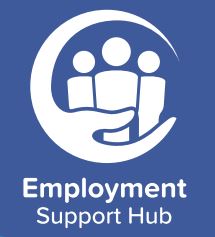 Emma Wellard
Emma Wellard
Wellbeing Team Manager
Integrative and Specialist Learning Disability Counsellor
ProAct Instructor
Staff Governor
Emma has 23 years experience in Special Education and can help with a wide range of problems and queries
Click here to email Emma
 Stephanie Box
Stephanie Box
Wellbeing Practitioner
Integrative Counsellor
YMHFA Instructor
Stephanie has 17 years experience in Special Education and has a son with complex needs. Stephanie can help with a wide range of queries. Click here to email Stephanie
.jpg) Kate Taylor
Kate Taylor
Wellbeing Practitioner
Integrative Counsellor
Kate has 9 years experience in Special Education and was a TA at the school before becoming part of the Wellbeing team. Kate can help with a wide range of queries. Please click here to email Kate
The Wellbeing Team offer a range of services to support parents and carers. Please see the leaflet below for further information.
The services we can offer includes:
- Support with filling in forms
- Signposting to other services
- Support and advice on a range of matters.
- Support during annual reviews and other meetings
- Arranging and running parent/carer training, workshops and parent groups
- An alternative point of contact from class teachers
- Workshops and parent groups
- Providing bespoke communication aids for home and school, such as, symbols, reward boards, timetable strips, and social stories.
All this support is available in the form of home visits, telephone, e-mail, home/school book and meetings at School
The Wellbeing Team
Well Being Leaflet
Dealing with a mental health crisis or emergency
A mental health crisis often means that you no longer feel able to cope or be in control of your situation.
You may feel great emotional distress or anxiety, cannot cope with day-to-day life or work, think about suicide or self-harm, or experience hallucinations and hearing voices.
A crisis can also be the result of an underlying medical condition, such as confusion or delusions caused by an infection, overdose, illicit drugs or intoxication with alcohol.
Where can I get help?
If you have already been given a Crisis Line number from a health professional, call it.
If you're under the care of a mental health team and have a specific care plan that states who to contact when you need urgent care, follow this plan.
The charity Mind provides information about how to plan for a crisis 0300 123 3392.
Samaritans has a free to call service 24 hours a day, 365 days a year, if you want to talk to someone in confidence. Call them on 116 123.
Find local crisis support services near you
Contact NHS 111
You can call NHS 111 if you or someone you know needs urgent care, but it's not life threatening.
You can also contact your GP surgery and ask for an emergency appointment.
In a crisis, you should be offered an appointment with the first available doctor.
Visit A&E or call 999
Mindfulness
It can be easy to rush through life without stopping to notice much.
Paying more attention to the present moment – to your own thoughts and feelings, and to the world around you – can improve your mental wellbeing.
You can check your mood using this simple mood self-assessment quiz.
Some people call this awareness "mindfulness". Mindfulness can help us enjoy life more and understand ourselves better. You can take steps to develop it in your own life.
What is mindfulness?
Professor Mark Williams, former director of the Oxford Mindfulness Centre, says that mindfulness means knowing directly what is going on inside and outside ourselves, moment by moment.
"It's easy to stop noticing the world around us. It's also easy to lose touch with the way our bodies are feeling and to end up living 'in our heads' – caught up in our thoughts without stopping to notice how those thoughts are driving our emotions and behaviour," he says.
"An important part of mindfulness is reconnecting with our bodies and the sensations they experience. This means waking up to the sights, sounds, smells and tastes of the present moment. That might be something as simple as the feel of a banister as we walk upstairs.
"Another important part of mindfulness is an awareness of our thoughts and feelings as they happen moment to moment.
"It's about allowing ourselves to see the present moment clearly. When we do that, it can positively change the way we see ourselves and our lives."
How mindfulness helps mental wellbeing
Becoming more aware of the present moment can help us enjoy the world around us more and understand ourselves better.
When we become more aware of the present moment, we begin to experience afresh things that we have been taking for granted.
"Mindfulness also allows us to become more aware of the stream of thoughts and feelings that we experience," says Professor Williams, "and to see how we can become entangled in that stream in ways that are not helpful.
"This lets us stand back from our thoughts and start to see their patterns. Gradually, we can train ourselves to notice when our thoughts are taking over and realise that thoughts are simply 'mental events' that do not have to control us.
"Most of us have issues that we find hard to let go and mindfulness can help us deal with them more productively. We can ask: 'Is trying to solve this by brooding about it helpful, or am I just getting caught up in my thoughts?'
"Awareness of this kind also helps us notice signs of stress or anxiety earlier and helps us deal with them better."
Mindfulness is recommended by the National Institute for Health and Care Excellence (NICE) as a way to prevent depression in people who have had 3 or more bouts of depression in the past.
See the NICE guideline on depression in adults.
How to be more mindful
Reminding yourself to take notice of your thoughts, feelings, body sensations and the world around you is the first step to mindfulness.
Notice the everyday
"Even as we go about our daily lives, we can notice the sensations of things, the food we eat, the air moving past the body as we walk," says Professor Williams. "All this may sound very small, but it has huge power to interrupt the 'autopilot' mode we often engage day to day, and to give us new perspectives on life."
Keep it regular
It can be helpful to pick a regular time – the morning journey to work or a walk at lunchtime – during which you decide to be aware of the sensations created by the world around you.
Try something new
Trying new things, such as sitting in a different seat in meetings or going somewhere new for lunch, can also help you notice the world in a new way.
Watch your thoughts
"Some people find it very difficult to practice mindfulness. As soon as they stop what they're doing, lots of thoughts and worries crowd in," says Professor Williams.
"It might be useful to remember that mindfulness isn't about making these thoughts go away, but rather about seeing them as mental events.
"Imagine standing at a bus station and seeing 'thought buses' coming and going without having to get on them and be taken away. This can be very hard at first, but with gentle persistence it is possible.
"Some people find that it is easier to cope with an over-busy mind if they are doing gentle yoga or walking."
Name thoughts and feelings
To develop an awareness of thoughts and feelings, some people find it helpful to silently name them: "Here's the thought that I might fail that exam". Or, "This is anxiety".
Free yourself from the past and future
You can practise mindfulness anywhere, but it can be especially helpful to take a mindful approach if you realise that, for several minutes, you have been "trapped" in reliving past problems or "pre-living" future worries.
Different mindfulness practices
As well as practising mindfulness in daily life, it can be helpful to set aside time for a more formal mindfulness practice.
Mindfulness meditation involves sitting silently and paying attention to thoughts, sounds, the sensations of breathing or parts of the body, bringing your attention back whenever the mind starts to wander.
Yoga and tai-chi can also help with developing awareness of your breathing.
Information:
You can watch this short mindful breathing exercise video on YouTube from Every Mind Matters.
Be Mindful is an online course for reducing stress, anxiety and depression, run by the Mental Health Foundation.
Is mindfulness helpful for everyone?
"Mindfulness isn't the answer to everything, and it's important that our enthusiasm doesn't run ahead of the evidence," says Professor Williams.
"There's encouraging evidence for its use in health, education, prisons and workplaces, but it's important to realise that research is still going on in all of these fields. Once we have the results, we'll be able to see more clearly who mindfulness is most helpful for."
More tips for wellbeing
There are other steps we can all take to improve our mental wellbeing. Learn more about the 5 steps for mental wellbeing.
SUPPORT FROM KCC
During the day and in office hours
Concerned about an adult?
Call 03000 41 61 61 email social.services@kent.gov.uk
Concerned about a child?
Call 03000 41 11 11 email social.services@kent.gov.uk
Out of hours and in an emergency
If you need to contact us outside of normal office hours, for example during the night, call 03000 41 91 91.
If you think someone is in immediate danger, the best thing to do is call 999 for the emergency services.
Tell us as much as you can
Resilience videos for parents
As a service we at the School Health Team are thinking of ways that we can support schools at this very difficult time for you all.
You may have already seen these, but if not we hope that you may find them useful. They are short videos with some easy to understand messages on helping parents to support their children with Resilience. Each video has Top Tips
I hope you will agree that these very simple messages are so important and can make such a difference.
https://kentresiliencehub.org.uk/resources/resilience-webinar-for-parents/
Peter Norton
Resilience Training Coordinator
Kent Community Health NHS Foundation Trust
School Transport
Pre-School to Reception
If your Child requires transport to School; please complete a T1 form by clicking here or downloading the form below or by visiting the KCC website and selecting the SEND transport page. For support with this process please contact Home School transport on 03000 41 21 21 or homeschooltransport@kent.gov.uk
Alternatively, please, contact the Wellbeing team for support with this process; 01227 464316
Years 6 to 7
If your Child is transitioning from year 6 to year 7 you will need to reapply for transport by completing the T1 form by clicking here or downloading the form below. If you have any difficulties with this please contact the Home School transport team on 03000 41 21 21
Alternatively, please, contact the Wellbeing team on 01227 464316 and they will support you with this process.
Post 6th form transport
If your young person is transitioning from the St Nicholas 6th form at Canterbury college to a new placement or education provider; you will need to complete a AW3 form below. Please contact Post 16 Transport for support with this process: Post16transport@kent.gov.uk or 03000 41 21 21
Alternatively, please contact the Wellbeing team for support with this process; 01227 464316
Independent travel training (ITT)
To apply for Independent Travel training please contact: ITT@kent.gov.uk or 03000 41 21 21
Day to Day transport issues
For any day to day transport issues; please contact client transport on 03000 4149 36 or clienttransport@kent.gov.uk . Alternatively, please contact the Wellbeing team on 01227 464316

.jpg)
.png)